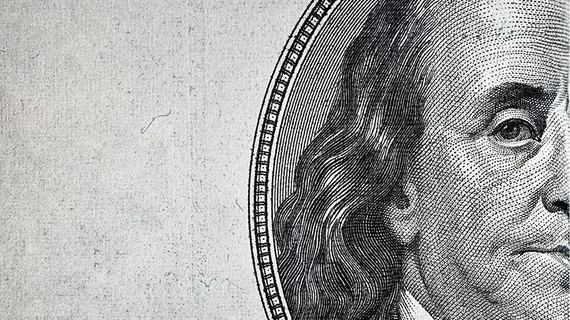Radiology practices struggling to make payroll during pandemic may have help, ACR says
Radiology practices struggling to make payroll amid widespread drops in imaging volume may have a lifeline, thanks to recently passed legislation.
In a Wednesday news post shared with its members, the American College of Radiology noted that the CARES Act offers opportunities to defer portions of payroll taxes during the pandemic. Such assistance could hopefully help leaders to “ease the detrimental financial impact of the COVID-19 on radiologists, radiation oncologists, medical physicists and their professional practices,” ACR wrote April 1.
In particular, radiologists and other employers can push back payment of their normal share of Social Security through the rest of this calendar year. Half of this deferred amount will come due Dec. 31, 2021, with the rest owed on the same date in 2022.
“This provision is essentially an interest-free loan with no strings attached, provided the business pays when that loan matures,” ACR advised this week.
The deferral program under CARES—short for Coronavirus Aid, Relief and Economic Security—does come with some caveats. For one, it only applies to the employer’s share of Social Security, and does not cover its Medicare taxes, nor the employee’s share of either. And those employers who have had indebtedness forgiven cannot make use of the deferral program.
In addition, CARES offers radiology practices loans that could also help to smooth out payroll disruptions until the business climate improves. ACR cautioned that its information is for educational purposes only and urged leaders to seek regulatory guidance before pursuing financial help. President Donald Trump signed the $2 trillion stimulus bill into law on March 27, and it also grants rads greater access to small business loans.
Across the country, hospitals and physician groups are being forced to take drastic actions to cope with declining patient visits. Bon Secours and Boston Medical, among others, have furloughed workers because of COVID-19. And Intermountain revealed recently that it’s cutting pay for doctors, nurse practitioners and physician assistants to make ends meet.

